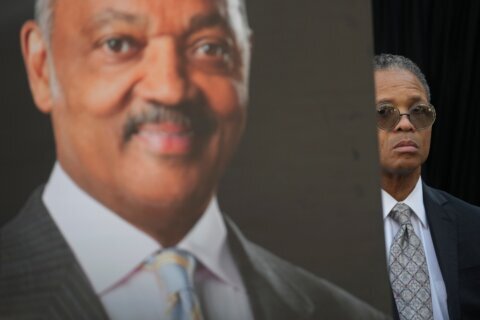WASHINGTON — The conversation is one many parents and teachers avoided even contemplating: What would they tell their children and students if Donald Trump were elected president?
The day after Republican Trump’s upset victory, many adults are at a loss for words, given the anxiety some young people have expressed about what would happen to them or school friends, and given Trump’s campaign positions on immigration and same-sex parent families.
Clearly, not all parents are greeting the news of the election with alarm. Trump won more than 47 percent of the popular vote in the presidential race.
But if you’re one of those parents or teachers who has concerns, the first thing to do is reassure children you’ll protect them, said Ali Michael, Ph.D., the director of K-12 consulting and professional development at the Center for the Study of Race and Equity at the University of Pennsylvania.
One of the things you can say is “We will keep you safe and part of how we will keep you safe is by using the democratic process,” said Michael. “We have democratic processes that make it impossible for one person to do a lot of damage.”
During the campaign, the Southern Poverty Law Center released a report entitled “The Trump Effect: The Impact of the Presidential Campaign on our Nation’s Schools,” which pointed to “an alarming level of fear and anxiety among children of color and inflaming racial and ethnic tensions in the classrooms.”
The study found many students worried about being deported, while others were concerned how a Trump presidency would affect their schoolmates.
“We won’t stand for a ban on Muslims, and we won’t stand for a retraction of gay rights,” said Michael. “We’re going to continue to fight for those rights; we’re not going to sit back and be silent.”
As a white, married woman, Michael acknowledged that members of underrepresented groups are likely feeling “profoundly depressed, scared, sad, and unsafe.”
“We need to reach out to our friends and neighbors who are Muslim, or who are people of color, or gay, or trans, or disabled, and say ‘We stand together,'” said Michael. “Show them they have allies and support — that’s part of what our kids can do for one another in this moment.”
Michael said it can be beneficial for parents to tell children that, as adults, they have lived through political disappointments.
“When I was little, the candidates that I wanted to win lost, and we would have four years and sometimes eight years, but we would survive it because there is a balance of powers in this country,” said Michael.
Michael said that for some parents, the election of Donald Trump can be a powerful teachable moment.
“Sometimes our candidates win; sometimes they lose, and we honor the outcome,” said Michael. “And we challenge whoever’s in office to expand our freedoms, and to protect us — to protect all of us.”







